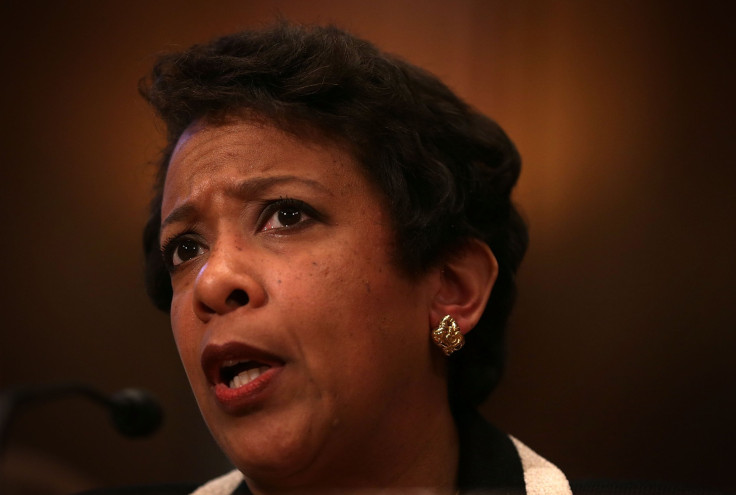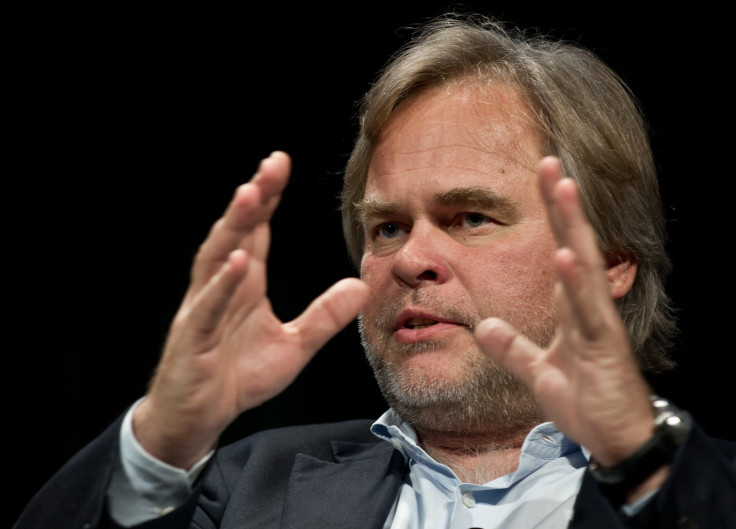Loretta Lynch: US Is Not Seeking Backdoor Access To Encrypted Communication But Wants Silicon Valley's Help

Top U.S. government and law enforcement officials are not trying to secure unfettered access to WhatsApp, Apple iMessage or any other major encrypted communication service, U.S. Attorney General Loretta Lynch said Friday. Lynch, speaking at the World Economic Forum in Davos, Switzerland, also said Silicon Valley is cooperating with the government in the privacy vs. surveillance debate, though she admitted both sides are “struggling with the issue.”
“We in the U.S. government are not asking for a backdoor,” Lynch said, referring to methods of obtaining unauthorized access to encrypted information. She added that encryption is a valuable tool for both the private and public sectors. “We're asking to work with Silicon Valley to make sure that as we preserve encryption we also preserve what we currently have, which is the ability for companies to respond to law enforcement warrants: court-ordered, court-authorized requests for information."
The attorney general's remarks coincide with an continuing international discussion over how much access governments should have to citizens' private communications. Apple CEO Tim Cook, former U.S. National Security Director Michael Hayden and much of the cybersecurity community have argued that strong encryption is an essential component in protecting user data. FBI Director James Comey and a vocal faction of Congress have sought legislation that would force social media companies and hardware makers to provide the contents of user communications to prevent terrorism and other crimes.
When asked Friday if she was satisfied with Silicon Valley's level of cooperation on the issue, Lynch said, “I think that's ongoing. They have some genuine points of view that are based in recognizing the value of encryption. At the same time, they're responsible companies that don't want to provide a model for terrorism. I think we're all struggling with this issue.”
Joining Lynch on the panel in Davos were Eugene Kaspersky, founder of the cybersecurity company Kaspersky Lab, Jürgen Stock, secretary general of Interpol, and Jean-Luc Vez, head of WEF's Public Security Policy and Security Affairs. Each member advocated increased intelligence sharing, with the ultimate goal of intercepting criminal messages in real time.

“In the past, cybercrime was a little problem without much of an impact on the world economy, but nowadays there are far more cybercrime gangs that innovate and can transform to the digital age,” Kaspersky said. “You have our 100 percent support against the bad guys. We want to save the world.”
Lynch previously criticized European efforts to limit data sharing with the United States. Last month Lynch bemoaned a court's decision to throw out the Safe Harbor agreement, an international deal that made it possible for U.S. technology companies transfer data from European users to their servers in the U.S. The court in that case sided with privacy activist Max Schrems, who argued that his data were vulnerable to falling into the hands of U.S. intelligence companies.
“It is particularly disappointing that the European Court of Justice, in a case based on inaccurate and outdated media reports, recently struck down the Safe Harbor agreement in the Schrems decision,” Lynch said in reference to the series of articles based on classified National Security Agency documents leaked by Edward Snowden. Lynch went on to say the Obama administration has made the “protection of civil liberties and privacy a priority in the fight against terrorism.”
David Sirota contributed to this report from Davos, Switzerland.
© Copyright IBTimes 2024. All rights reserved.




















